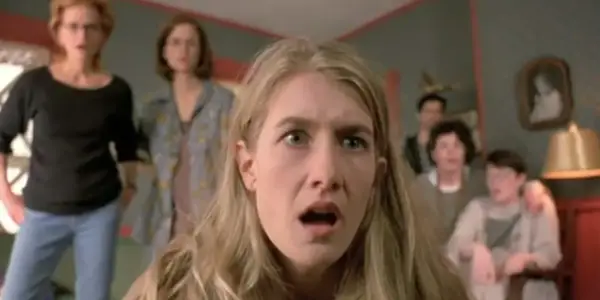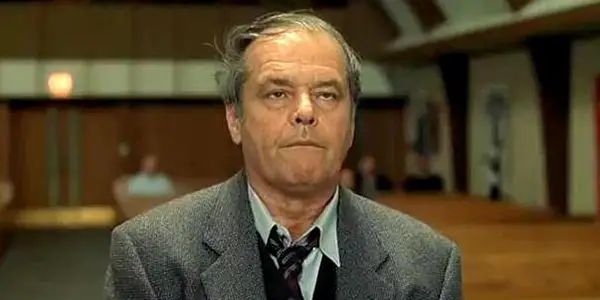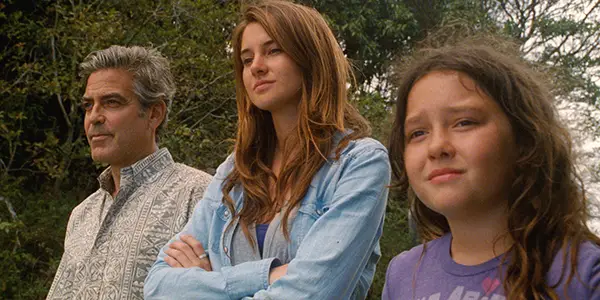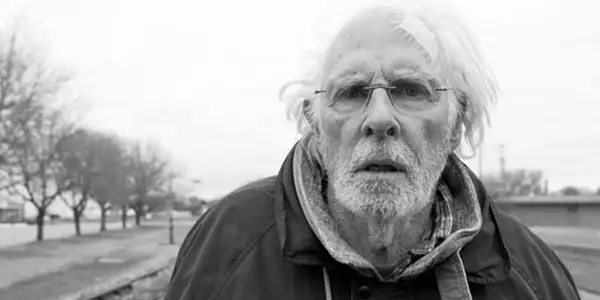The Beginner’s Guide: Alexander Payne, Director

David is a film aficionado from Colchester, Connecticut. He enjoys…
I’ve always thought of Alexander Payne as one of this generation’s premier storytellers. His films are typically small in scope (in the case of Downsizing, even more so), focusing on tight-knit communities and expressing deeper countenances about life, love, and finding purpose.
Payne’s films are almost always memorable, and in a distinctive way from many other filmmakers that tackle similar subjects. They utilize score-driving narratives, strike just the proper balance between drama and comedy, and have similar trademarks, such as voice-over narration, flawed middle-aged or older protagonists, discussions of adultery, or the loss of a loved one. Above all, though, his films are just so undeniably lifelike, with the background setting in which they live often being as integral as the plots and characters themselves.
In this beginner’s guide, I will focus on Alexander Payne‘s six films leading up to Downsizing. Though his latest has received less-than-stellar reviews, it’s still worth it to check out his otherwise untouchable over 20-year-span filmography.
Citizen Ruth (1996)

Payne‘s first film is very much an indicator of what was to come for him. It focuses on Ruth Stoops (a shaggy, yet still likable Laura Dern), a drug addict who does everything she can to get high. After her latest arrest for being inebriated in public, Ruth discovers to her horror that not only is she pregnant, but she could be facing felony charges.
The judge decides to strike her a deal: if Ruth, who is clearly incapable of caring for a child, were to get an abortion, she would not have to serve her sentence. Soon after this statement is made, Ruth runs into some abortion protesters, who decide to take her in and try to convince her not to undergo the procedure. Such a decision leads to Ruth being then targeted by pro-choice advocates, and finally, after the media gets involved, becoming the focus-point for the abortion debate in general.
Citizen Ruth is a film that could clearly be controversial due to its subject matter. Abortion has never been an easy subject to talk about, yet Payne has created a farcical comedy that does just that. Yet the film also remains remarkably unbiased, presenting the extremist points of view and behavior for both pro-life and pro-choice advocates, all of whom use trickery, bribery, and deception to try to pull Ruth over to their side. Yet, Ruth herself is a simple-minded woman just tying to take the best offer she can, not really caring one way or the other.
Even more so than abortion, though, Payne has stated that the film is really about fanatical states of mind in general. This is represented in the film’s final shot, in which Ruth, who has deceived both sides, walks away from the heated exchanges happening all around her without being noticed – the focus was never really on her in the first place, but more about who wanted to be right. It’s a darkly comedic take on a controversial subject which, though arguably not as successful as in his future films, still resonates with the budding talent of a great filmmaker to come.
Election (1999)

Based on a novel of the same name, Election is perhaps still one of the most ideal representations of Alexander Payne‘s all-encompassing style. The film focuses on Jim McAllister (Matthew Broderick), a high school social studies teacher in Omaha, Nebraska who is also in charge of the upcoming school election. The current unopposed pick for school president is Tracy Enid Flick (Reese Witherspoon at her pluckiest), a girl whose unrivaled drive for success often leads to her manipulating and cheating her way to the top. To try to drive down her ego, Jim convinces timid football player Paul Metzler (Chris Klein) to join the race, hoping that his popularity will take away some of Tracy’s votes.
The film is more than just about the clash between Jim and Tracy, however, diverting to side-plots about Jim’s imposing failed marriage and Paul’s reckless lesbian sister Tammy (Jessica Campbell), who also joins the school election basically as a protest vote (and also to take revenge against her former friend, who stats to date Paul after refusing Tammy’s own advances). This side-story in particular often seems superfluous, never truly integrating with the remainder of the story, but the film as a whole is still immensely effective. Election contains many of Payne‘s soon-to-be recognizable trademarks, including: the use of various voiceovers, a light but energetic score by Rolfe Kent, discussions of infidelity, and the use of location as a character, in this case, his own hometown of Omaha, Nebraska.
Payne also uses the simple politics of this Nebraskan high school to shed light on the overarching world of politics in general. Tracy, who many have compared to Hillary Clinton, is representative of those headstrong, do-gooders who strive to succeed against all odds (even, perhaps, committing questionable acts in the process). Yet, Payne, along with Witherspoon‘s rambunctious demeanor, still makes Tracy seem sympathetic by the conclusion of the film. Meanwhile, Jim, who tries but fails to bring Tracy down, is reduced to an emasculated shell of his former self. Perhaps, though, that is the lesson to take from Election. After all, hell hath no fury like a woman scorned.
About Schmidt (2002)

About as different in subject as Election as you can get, About Schmidt focuses on an aging retired man about to settle down to his twilight years along with his wife (played by June Squibb). That man is Warren Schmidt (Jack Nicholson, in perhaps his most even and nuanced performance), who has recently begun his retirement after years working as an actuary for a life insurance company.
Finding that he has a lot of spare time on his hands, he decides to sponsor an African boy named Ndugu Umbo. In voice-over as letters to Ndugu, Warren describes his daily monotonous routine, including his increasing annoyances with his wife, his unhappiness in the man that his daughter will soon marry, and his overall dissatisfaction with life itself. As if to make matters worse, though, his wife one day dies of a blood clot in her brain. Warren is forced to live out the rest of his days on his own, finding some sort of meaning to it all in the process.
About Schmidt is perhaps Alexander Payne‘s most emotionally affecting film, yet it is anything but depressing to sit through. Warren Schmidt may be neurotic, but Nicholson brings that likability factor to him, often establishing that, though sometimes clueless and insensitive, his heart is still in the right place. Much of the film follows along on his adventures as Warren slowly makes his way to his daughter’s house in time for her upcoming wedding, which includes a funny scene in a trailer with another traveling couple, and a hilariously awkward series of exchanges with the mother of his daughter’s impending husband, played by Kathy Bates.
A subject that will soon come up in subsequent Payne films after About Schmidt is that of the death of a loved one, and dealing with the hardships that not only come with that, but in facing that your loved one also happened to not be faithful to you in life. Warren discovers this with his wife, who had been having an affair with one of their mutual friends some years back.
Even dealing with this realization now, though, he soon discovers that he can still forgive her and move on with his own life. Alexander Payne‘s films, above all, focus on flawed characters who strive for and seek redemption. Warren ultimately finds peace in an unexpected place, and when he finally realizes what he has, it’s a truly earned poignant moment.
Sideways (2004)

Sideways, to me, is perhaps Payne‘s most unabashedly enjoyable film. It focuses on a man named Miles Raymond (Paul Giamatti), a middle-aged teacher attempting to make it as a writer in California. The film itself concerns a road trip that he undertakes with his crass best friend Jack Cole (Thomas Haden Church) to upstate California’s wine country in anticipation of Jack’s upcoming wedding. Along the way, alongside the numerous wineries they visit, the two make new friends, though Miles’ increasing neuroticism often gets in the way of his full enjoyment.
If the protagonist, aptly and perfectly played by Paul Giamatti, sounds familiar, then you’re clearly paying attention. Miles is an unsuccessful writer and an unsuccessful family man, so his love for wine seems to be one of the only things that helps him get by. At times, it is a suitable passion, coexisting with the rest of his life in addition to allowing him to get closer with a woman named Maya Randall (Virginia Madsen), who is also a wine connoisseur. At other points, it acts as a distraction, a way for Miles to fill his dissatisfaction in life with alcohol. In a way, the wine is representative of Miles’ clashing views on life: he wants dearly to be happy, but he’s always getting in his own way.
More than his past three films, Sideways seamlessly brings together nearly every facet of Alexander Payne‘s uniquely thoughtful storytelling. It has the humor, the heart, the inspired character performances (besides Giamatti, Church is also a joy to watch), and, more than anything, utilizes the backdrop of the wide-open wine country of California as a metaphor for the central characters’ inward plights. Once again scored by Rolfe Kent, the score is an idyllic blend of acoustic and more jazz-inspired ballads. It’s notable to also mention that overall wine consumption in the western United States went up considerably after the premiere of Sideways in 2004 (though Merlot, which is constantly panned by Miles throughout the film, showed a drop in sales). Either way, it’s a funny case of art influencing the world around it.
The Descendants (2011)

Perhaps Payne‘s most commercially successful and overall approachable film, The Descendants takes place in the beach-soaked landscape of Hawaii. Yet, it is anything but glamorous, even if the relaxing Hawaiian-influenced soundtrack may say otherwise. Matt King (George Clooney at his dadest) has just discovered that his wife, who was in a boating accident, is unlikely to ever regain consciousness, and so the doctors will be forced to pull the plug after a few days.
To make matter worse (as Payne‘s films like to do, and resorting once again to this common theme) Matt soon discovers that his wife was having an affair. Along with his two daughters, teenager Alex (Shailene Woodley) and the young Scottie (Amara Miller), he has to confront both his wife’s impending demise and her infidelity while she was alive before moving on and raising his children as a single dad.
Alongside Matt’s story itself is a subplot about his family’s background, which is about to lose 25,000 acres of land unless King sells the property to commercial developers before their claim expires. This subplot as a whole, though, doesn’t drive the film forward so much as act as a turning point for Matt’s eventual reconciliation with his wife. Family and preservation is important, he soon discovers, and this aspect of the story is there to tell us that. This does, though, make The Descendants seem overall safer than Payne‘s other films. Before Matt even sits down to fill out the contract, we already know what he is going to do.
Where The Descendants indisputably succeeds is with its depiction of Hawaii. The sun-kissed beaches and crisp blue-green water is often highlighted, but only as an interlude between more emotionally heavy portions of the film; for example, when Matt and his children are visiting the man who his wife was having an affair with in order to let him know about his wife’s situation, or before actually visiting her in the hospital one last time. The juxtaposition is ripe, though never too in-your-face. Alexander Payne just wants to show you that, though people may live in a seemingly wondrous perpetual vacation of a home, they still have the same problems as the rest of us.
Nebraska (2013)

Nebraska is perhaps Alexander Payne‘s most realized film. Presented in gorgeous black-and-white, a distinction for modern films in general, it focuses on Woody Grant (Bruce Dern), an old man who gets a letter in the mail alerting him about a million dollar sweepstakes prize. Though the prize is clearly a scam, he is committed to accepting it, and starts to walk to Lincoln, Nebraska from Montana after no one agrees to drive him.
Eventually, after multiple escape attempts, Woody’s son David (Will Forte) agrees to take him there, though he decides to stop in Hawthorne, Nebraska along the way in order to visit their extended family that they hadn’t seen in some time. Here, Woody lets slip that he won a million dollars, and the news starts to spread throughout the town, including to news outlets and old friends of Woody’s, who soon start begging for a piece of the prize.
Considering the downtrodden subject of an aging, possibly losing his mind old man at its core, Nebraska seems to initially be a depressing film to sit through. But it’s actually quite warmhearted, filled with delightful moments, humor, and some incredibly down-to-earth performances, especially by Bruce Dern as the elderly Woody and Will Forte as his forgiving son. The black-and-white cinematography, which Payne has said was necessary to produce an “iconic, archetypal look,” reflect on the film’s themes of the past reflecting on and influencing the present.
Woody is a man who was always stepped on in life, and in getting this money for his children he feels he can make up for not giving them enough growing up. His past, in the form of the vengeful inhabitants of Hawthorne, is not as forgiving, but with the help of his son David, he can perhaps have a moment of redemption before he’s done. It’s a film that, much like About Schmidt, comes full circle by its final moment. And what a glorious moment it is.
Alexander Payne: Conclusion
Alexander Payne‘s films reflect on the human condition, whether it be the extremist states of mind of abortion, the politics of a Nebraskan high school, the existential crisis of a lonely widowed man, the neurotic adventures of a wine connoisseur, the plight of a soon-to-be single dad who knows next to nothing about parenting, and the struggles of an old man to reconcile with his past.
Regardless of your current age or gender, they are films that reflect on all of us – we’ve all felt like that outlier in the crowd, or pondered our purpose, or hoped that life would sometimes throw us a bone. Like life itself, Alexander Payne’s films can often be unforgiving. Yet, like Woody Grant’s triumphant truck drive down Main Street of Hawthorne, Nebraska, maybe one day we’ll all get our chance behind the wheel.
What is your favorite Alexander Payne film? Let us know in the comments below!
Does content like this matter to you?
Become a Member and support film journalism. Unlock access to all of Film Inquiry`s great articles. Join a community of like-minded readers who are passionate about cinema - get access to our private members Network, give back to independent filmmakers, and more.
David is a film aficionado from Colchester, Connecticut. He enjoys writing, reading, analyzing, and of course, watching movies. His favorite genres are westerns, crime dramas, horror, and sci-fis. He also enjoys binge-watching TV shows on Netflix.













